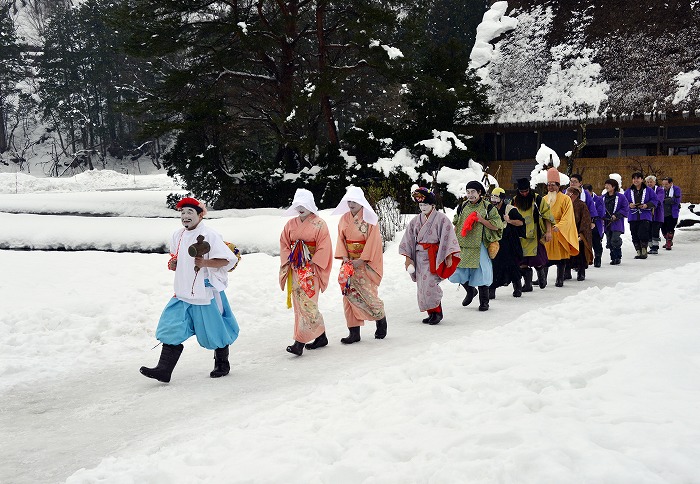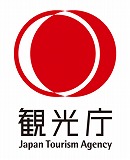最終更新日:2023年12月14日

Harukoma (“spring horse”) is a type of traditional performance art specific to the village of Ogimachi. A combination of theater, music, and dance, it features actors dressed up as the Seven Lucky Gods of Japanese mythology, who along with two dancers perform a variety of comical acts that draw on legends associated with the deities of fortune. The repertoire consists of six such acts, including one in which Ebisu, the god of prosperity and commerce, fishes for sea bream, a symbol of good luck, and another with Daikokuten, the deity of agriculture and wealth, who conjures up coins with his golden mallet. Harukoma has been performed in Ogimachi since at least the Meiji era (1868–1912) and was, as the name suggests, originally associated with spring. On hatsu-uma, the first day of the horse in the second month of the traditional lunar calendar (which now falls anywhere between late February and mid-March), a Harukoma troupe would go from house to house in the village, performing their luck-bringing show to pray for a prosperous year. Early spring marked the start of the sericulture and farming seasons, and Harukoma was considered an auspicious way to ring these in. The procession remains a fixture on Ogimachi’s annual calendar, but it now takes place on New Year’s Day instead. The whimsical ensemble parades through the village, visiting one home after the other and partaking of sake at every stop. Harukoma is also performed at the Doburoku harvest festival in October and on celebratory occasions such as weddings.
この英文解説は、2021年観光庁「地域観光資源の多言語解説整備支援事業」により整備しています。
This English description is provided by the "Multilingual Commentary Project 2020" of Japan Tourism Agency.

Back Home